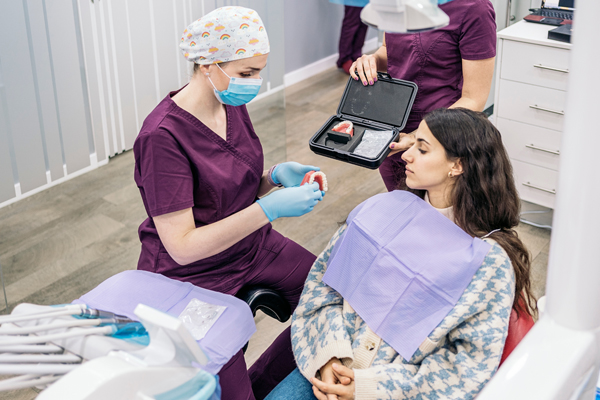For Effective Preventive Dentistry You Must Avoid These Bad Habits

Practicing preventive dentistry is an effective way to establish good oral health. Strict personal oral hygiene practices result in fewer dental problems. Strengthening these practices with regular dental appointments makes preventive dental care even more efficient. Preventive dentistry becomes even more effective by avoiding some bad habits.
Nail-biting
This habit increases the risk of chipping teeth. It also introduces bacteria from under the nails into the mouth. Once additional bacteria invade the mouth, the person is at risk for more ailments. Trimming nails every other day helps break this habit. Applying nail polish on the nails can also help. The bitter taste of the nail polish discourages nail-biting.
Skipping brushing or brushing too hard
Brushing teeth in the morning and before bed is a good oral care practice. One can enhance this by brushing after every meal. Regular brushing can help strengthen preventive dentistry practices. Skipping the habit of brushing teeth gives a chance for plaque to stay longer on teeth. This results in tartar formation, periodontitis, and tooth loss.
A moderate degree of brushing cares for teeth and gums. Brushing too hard irritates gums and strips off the enamel of teeth. It also results in gum recession. Intense brushing opposes the main purpose of preventive dentistry. Using a toothbrush with soft bristles is enough to clean teeth. Spending two to three minutes brushing in a circular motion is ideal.
Drinking sweet beverages
Sugary drinks are addictive. That is why it is so easy for them to damage teeth. The carbohydrates in these drinks feed the bacteria in the mouth. This encourages more plaque to grow at a faster rate. Gum disease and tooth decay happen over time. Preventive dentistry practices involve drinking water more often.
Placing hard and inedible objects in the mouth
Chewing ice, holding keys with teeth, biting pencils, and keeping toothpicks in between teeth oppose the purpose of preventive dentistry. These habits damage teeth, promote tooth decay, and create problems in the jaw. It is more practical to stop chewing hard objects or carry a bag for holding items. Stopping these habits may take time, but the results will be rewarding.
Using tobacco
Quitting smoking and other tobacco products is a difficult habit to break. However, this habit can cause severe damage to a patient's teeth and gums. This damage includes:
- Staining and discoloration
- Periodontal disease
- Gum recession
- Oral cancer
- Reduced saliva production
- Bad breath (halitosis)
Quitting tobacco use can help protect the patient's oral and overall health.
Consuming acidic foods and beverages
Drinking acidic beverages and eating acidic foods weaken the teeth. Soda, citrus juices, coffee, and tea are rich in acids. The same goes for lemon or vinegar-based dressings and dips. Additional sugars feed bacteria, encouraging the release of more acids. These substances are not welcome in preventive dentistry. The acids from them strip off the protective enamel layer of the teeth.
Preventive dentistry is more effective without these bad habits
Stopping these habits can protect your teeth, gums, and overall health. It may take some effort to give them up, but it will be worth it in the long-term. The Dental Partners White Station team is here to help you quit these habits. Call our office to learn more.
Request an appointment here: https://familydentalmemphis.com or call Dental Partners White Station at (901) 201-4577 for an appointment in our Memphis office.
Check out what others are saying about our services on Yelp: Preventive Dentistry in Memphis, TN.
Related Posts
Taking care of your oral health goes beyond just brushing and flossing every day. Fortunately, an experienced dentist will work with you to prevent potential dental problems and keep your mouth healthy over time. They can detect issues in their early stages and create personalized treatment plans. A dentist provides professional advice to improve oral…
Dentures are a reliable solution for restoring proper oral function after tooth loss. While dental implants have gained popularity in recent years, dentures continue to be an effective treatment method for many people looking to repair their smiles. The following blog explores the pros and cons of dentures versus dental implants, highlighting why dentures are…
Considering dental implants? This method for replacing missing teeth is one that more and more dental professionals are recommending. However, with all things come a few downsides too. Keep reading to learn more about the pros and cons of dental implants.Outlined below are both the pros and cons of dental implants. This information should be…
Proper aftercare is a crucial part of the success of any procedure, including root canals. For example, those with an infected or severely cracked tooth may avoid extraction thanks to root canal therapy. Despite the benefits root canals provide, many people find them intimidating. However, a root canal is a fairly simple procedure that reduces…
